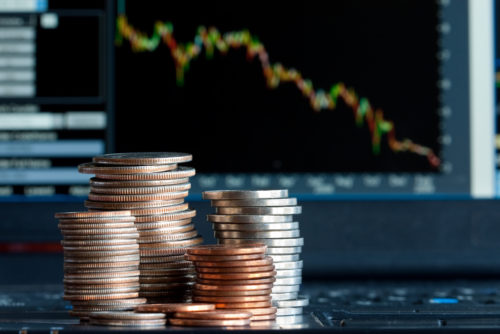The term “baby boomer” refers to the post-war expansion of the American population. People started having babies — significant numbers of them — between 1946 and 1964. In fact, baby boomers are so numerous that they make up almost an entire quarter of the US population. The facts and figures in this paragraph and the rest of the introduction are taken from a 2014 study by the American Census Bureau.
In 1945, World War II was over and America was recovering from the Great Depression. It was likely a combination of economic and social forces that lead people to feel comfortable enough to start having more children. The baby boom was defined by a period of high birth rates, previously unprecedented. The birth rates were so high that baby boomers still remain the largest generation in 2019, although they will soon be overtaken by millennials in number.
A generation of this size can’t help but have an effect on the economy. When they grew up, boomers became the largest workforce, and contributed immensely to America’s consumer economy. So, what happened? Are baby boomers to blame for the current struggles of younger generations, and what did they do to help bring about current economic situations in the US?
Table of Contents
How Did the Baby Boomers Affect the US Economy?
Baby boomers grew up in the “height of American prosperity” and enjoyed myriad technological advancements, comforts, financial stability, and health. When they entered the workforce, as the largest generation in history at the time, they provided America with yet more economic prosperity. Baby boomers have been a force for economic and social good. They engaged in creating prosperity for the US and engaged in positive change such as the civil rights movement. Unfortunately, the influence of baby boomers has not always been positive.
The Effect of Baby Boomers’ Policy
In an interview with Vox, Bruce Gibney, the author of the book “A Generation of Sociopaths: How the Baby Boomers Destroyed America” outlines some of his arguments against the baby boomer generation. He touches on the debt to GDP ratio, which was 35 percent 41 years ago (when Gibney was born) and was around 103 percent at the time of the 2018 interview. He discusses a number of factors related to this; the wars during the Bush years, and the dominant economic policy and theory pushed by boomers. He takes care to note that he’s specifically talking about white middle class boomers, who became the largest and most influential portion of the electorate in the 80s, and have solidified a great deal of generational control over politics and finance in the modern era.
Gibney reasons that the hold on political power and financial wellbeing by the boomer generation means that political and financial failures can also be attributed to them; this includes a lack of movement on climate change as well as under-investment in critical infrastructure, education, and social programs. Weak policy, distrust of science, and an individualist view of economic prosperity has delivered a country into the hands of younger generations that is weaker than when the boomers inherited it.
The children of baby boomers face massively increased tuition costs and reduced job prospects compared to their parents, and have inherited a host of expensive issues to fix. On top of that, baby boomers have started to retire, and the strain of such a large portion of the population retiring is likely to have a detrimental effect on both the economy and the social programs going to support the retirement process.
Will Baby Boomers’ Delayed Retirement Damage America?
More than half of workers over 60 are putting off retirement, and this is potentially disastrous news.
For one thing, when olders workers don’t leave the workforce it means fewer positions for younger people entering the workforce. In politics, and in lucrative workplace positions, baby boomers just aren’t stepping aside.
Considering how overburdened social security is already, it may seem like good news that older workers are delaying retirement. That, however, is all it is: a delay. In the meantime, younger generations battle with significant debt under stagnating wages.
The Impact of Social Security
America is aging. The population of over 65 Americans will have almost doubled between 2012 and 2050. The largest generation leaving the workforce is going to have a huge economic impact and it’s going to put much more strain on social security.
Retirement doesn’t just mean a shortage of workers. Retirees have less disposable income and are more likely to be dependant on others, like their children, which, in turn, reduces the disposable income of those children. This become especially problematic if social security collapses and that financial burden falls onto the families of retirees. Less disposable income means less consumption and a weaker economy. Fewer working age people in general means fewer people contributing to programs like social security with their workforce and economic participation, putting further burden on the programs designed to take care of retired populations.
People delaying retirement doesn’t help, because the generation is still aging. By the time they retire, the system will be even more strained. A crisis with social security is imminent, and it’s very likely that it was caused by mismanagement by the baby boomers themselves.
Plenty of good happened while the baby boomers were inheriting one of the most prosperous countries in the world. Many younger generations believe, however, that the baby boomers are leaving America much worse off than they found it.
Image Source: https://depositphotos.com/





